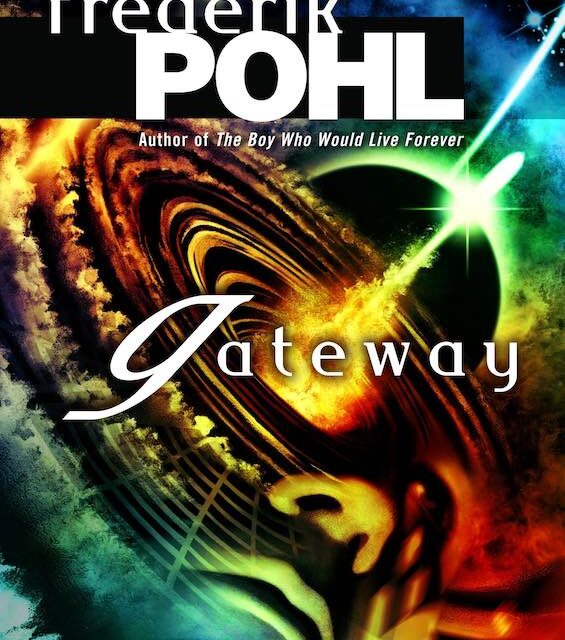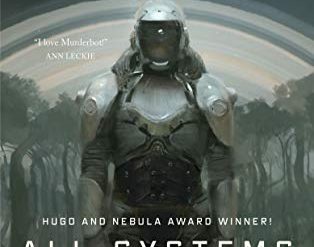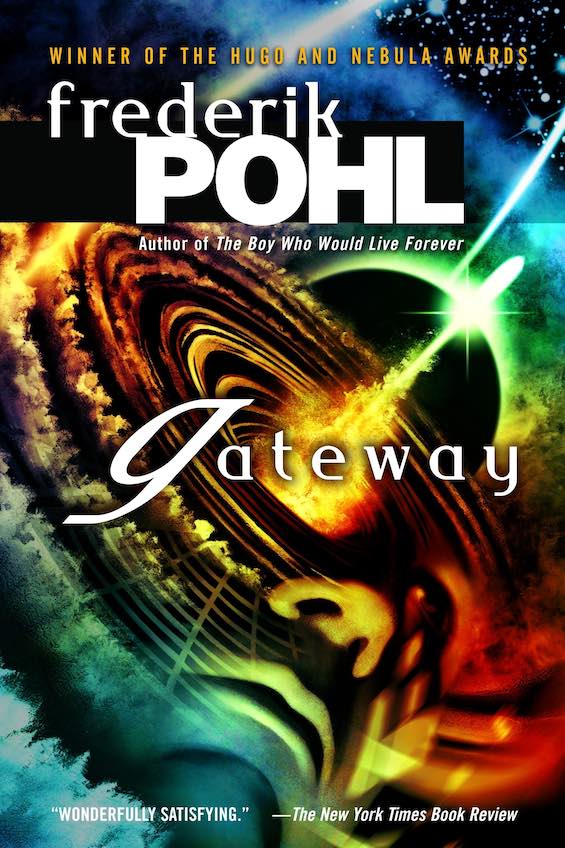
Over the quarter-century from 1977 to 2004, Frederik Pohl published the five novels and many short stories that comprise the Heechee Saga. The Heechee are a long-vanished alien race that spread far and wide into the universe. They left behind in the solar system a scattering of artifacts and thousands of tiny starships capable of faster-than-light travel. Set in our future, the stories explore how humans gradually reach out into the universe using Heechee technology—often dying in the process. In Gateway, the novel that launched the Heechee series, Pohl introduces us to the two hollowed-out asteroids where the starships are based and to the adventurous men and women who risk their lives to survey the outermost reaches of the galaxy and beyond.
Exploring the universe—to get rich
For Robinette (Bob) Broadhead, exploring the universe is all about money. He’s not alone. Hundreds of prospectors make their way to Gateway, where the Heechee had berthed most of their ships. They come in hopes of scoring a fortune in bonuses and royalties offered by the Gateway Corporation for the bits of technology they uncover near distant stars. The odds against them are great. Roughly two out of every three Heechee ships that leave Gateway never return—or arrive with everyone dead onboard. But prospectors are desperate. For many, like Bob, the goal is “full medical” that will keep them youthful and healthy for decades to come at any age they desire. But that comes at a steep price only a fortune in the millions can command.
Gateway (Heechee Series #1 of 5) by Frederik Pohl (1977) 313 pages ★★★★☆
Winner of the Hugo and Nebula Awards for Best Novel
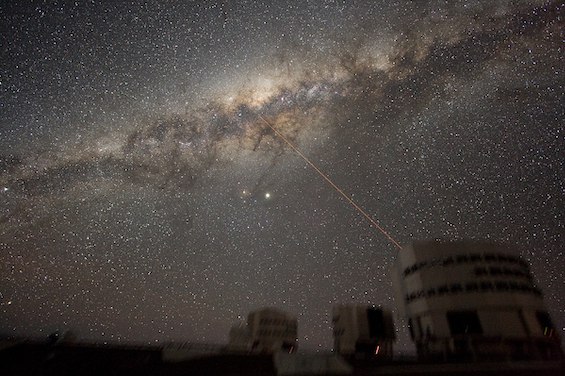
A classic anti-hero
Bob is no kind of hero. We get to know him in his sessions with the “therapist,” an artificial intelligence he dubs Siegfried Q. Shrink. Bob’s sessions with Siegfried run throughout the narrative, and in them we see Bob at his worst. He is a whining, petulant man of about 40 who can’t face up to his repressed homosexuality and his more obvious fears, which are abundant. He has engaged in a series of affairs with women, all of which seem to end poorly.
At the outset, we meet Bob late in life. He lives on Earth, possessing a fortune, covered by full medical, and indulging every whim. The story of his voyages from Gateway unfold in the telling and in his sessions with Siegfried. It’s not a pretty story. People die. Bob acts badly. But all the while the voyages continue, and little by little humanity gains additional advantage from the Heechee technology prospectors discover scattered among the stars.
The author of the Heechee series
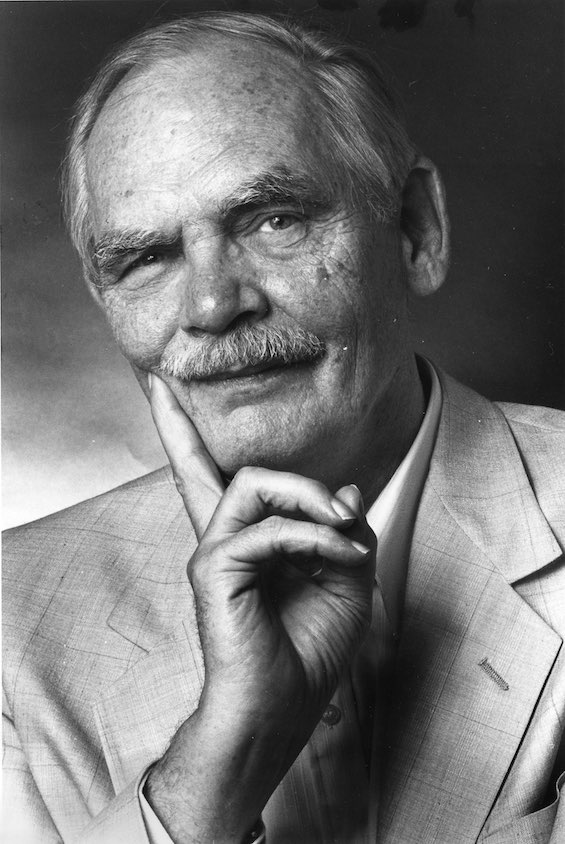
Frederik Pohl (1919-2013) was one of the most prominent writers and editors in the field of science fiction for many decades. His career spanned 75 years, from the publication of a poem about a satellite in 1937 to his last novel in 2011. Gateway, and the Heechee series novels that followed, is only the best-remembered of his writing. Pohl was a recipient of the Damon Knight Memorial Grand Master Award, a rare distinction conferred by his peers. I met him in the 1970s when he served as President of what was then the Science Fiction Writers of America (SFWA). He was grouchy.
For more reading
For more good reading, check out:
- The ultimate guide to the all-time best science fiction novels
- 10 top science fiction novels (plus lots of runners-up)
- The five best First Contact novels
- 10 best alternate history novels reviewed here
- Seven new science fiction authors worth reading
And you can always find my most popular reviews, and the most recent ones, plus a guide to this whole site, on the Home Page.

